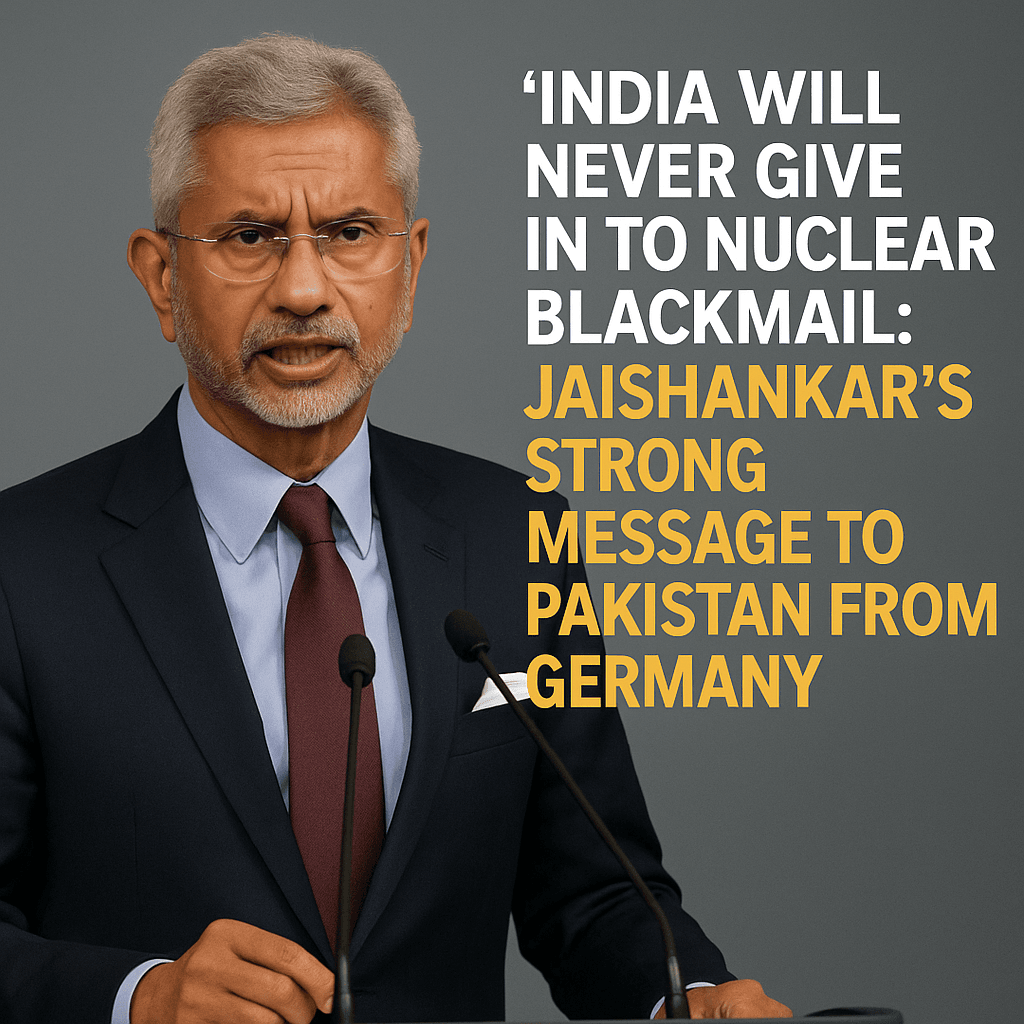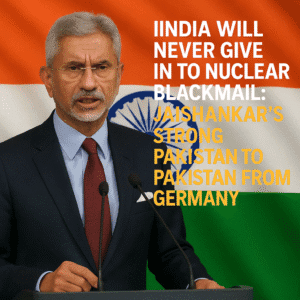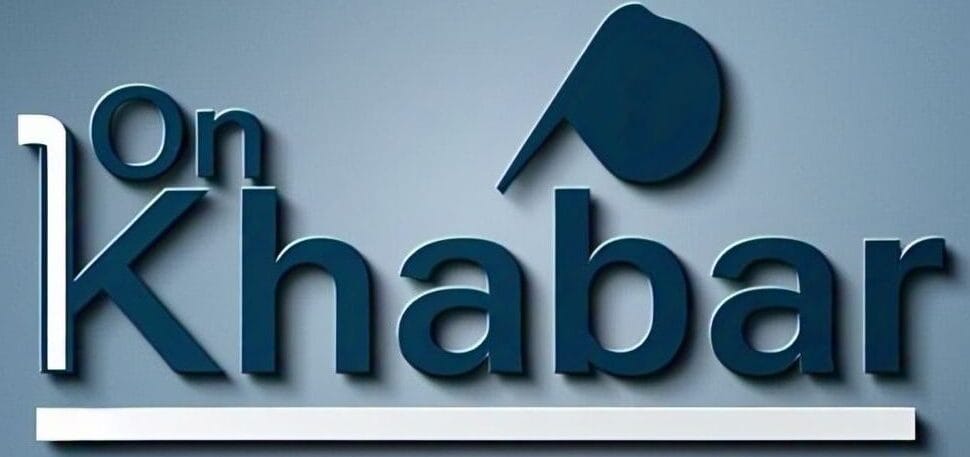
As geopolitical tensions simmer in South Asia, India’s External Affairs Minister, Dr. S. Jaishankar, concluded his three-nation Europe tour with a pivotal stop in Germany, where he reinforced India’s unwavering stance on combating terrorism and resolving conflicts bilaterally. Against the backdrop of the recent Pahalgam terror attack and escalating India-Pakistan tensions, Jaishankar’s visit underscored India’s strategic priorities while garnering critical international support. Here’s a deep dive into the key takeaways from his diplomatic engagements in Berlin and why Germany’s endorsement matters.
#WATCH | EAM Dr S Jaishankar says, “I come to Berlin in the immediate aftermath of India responding to the Pahalgam terror attack. India has zero tolerance for terrorism. India will never give in to nuclear blackmail, and India will deal with Pakistan purely bilaterally. There… pic.twitter.com/QhKfFsYmNO
— ANI (@ANI) May 23, 2025
Germany Backs India’s Right to Self-Defense Against Terrorism
The highlight of Jaishankar’s Germany visit was the unequivocal support extended by German Foreign Minister Johann Wadephul, who affirmed India’s right to defend itself against cross-border terrorism. This endorsement came days after a deadly terror attack in Pahalgam, Jammu and Kashmir, which claimed 26 civilian lives. Wadephul condemned the attack unequivocally, stating, “Germany will support any fight against terrorism. Terrorism must never have a place in the world.”
The German Foreign Minister’s remarks signal a significant alignment between the two nations on counterterrorism strategies. By emphasizing India’s sovereign right to self-defense, Germany not only validated India’s security concerns but also positioned itself as a reliable partner in fostering regional stability. This solidarity is particularly crucial as India navigates complex geopolitical dynamics, especially with Pakistan.

India’s Zero-Tolerance Policy on Terrorism Reiterated
During a joint press conference in Berlin, Jaishankar left no room for ambiguity regarding India’s stance on terrorism. “India has zero tolerance for terrorism. We will never give in to nuclear blackmail,” he declared, addressing Pakistan’s implicit threats. His statement was a direct response to the heightened tensions following India’s retaliatory actions post-Pahalgam and Pakistan’s history of leveraging its nuclear capabilities as a deterrent.
Jaishankar’s messaging was twofold:
Rejection of External Mediation: India insists on resolving disputes with Pakistan strictly through bilateral dialogue, dismissing any third-party involvement.
No Concessions to Terror: By ruling out “nuclear blackmail,” India reinforced its commitment to retaliate decisively against terror strikes, irrespective of Pakistan’s nuclear posture.
This firm rhetoric aligns with India’s post-2019 Balakot doctrine, which emphasizes preemptive strikes on terror infrastructure across borders.
The Pahalgam Attack: A Catalyst for Global Solidarity
The Pahalgam terror attack, orchestrated by Pakistan-based militants, has become a rallying point for international condemnation. Germany’s vocal support mirrors growing global impatience with state-sponsored terrorism. Jaishankar leveraged this momentum to highlight Pakistan’s role in destabilizing the region, urging the international community to hold perpetrators accountable.
Germany’s condemnation also reflects Europe’s evolving perspective on South Asian security. Historically cautious in commenting on India-Pakistan disputes, Berlin’s explicit backing marks a diplomatic win for India, amplifying pressure on Islamabad to dismantle terror networks operating from its soil.
Bilateralism Over Third-Party Mediation: India’s Red Line
A recurring theme during Jaishankar’s Europe tour was India’s insistence on resolving conflicts with Pakistan without external interference. “India will deal with Pakistan purely bilaterally,” he asserted, countering Pakistan’s attempts to internationalize the Kashmir issue through forums like the United Nations.
Germany’s response cautiously balanced support for India’s stance with a call for dialogue. Wadephul stressed the “importance of maintaining current understandings” between India and Pakistan while advocating for “stable dialogue to resolve conflicts.” This nuanced position acknowledges India’s sovereignty concerns while encouraging de-escalation—a stance likely shaped by Europe’s broader interest in regional stability amid the Ukraine crisis.
Nuclear Blackmail: India Draws a Line in the Sand
Jaishankar’s reference to “nuclear blackmail” underscores a long-standing concern in India-Pakistan relations. Pakistan has frequently hinted at its nuclear capabilities to deter Indian military responses to terror attacks. By categorically rejecting such tactics, India aims to neutralize this psychological warfare and assert its readiness to defend its interests.
This messaging resonates globally, particularly with nations wary of nuclear proliferation risks. Germany’s alignment with India on this issue strengthens the narrative that nuclear threats cannot shield states from accountability for harboring terrorists.
Implications for India-Germany Relations
Jaishankar’s visit wasn’t just about terrorism; it was a strategic move to deepen Indo-German ties amid shifting global alliances. Germany, a key EU power, is increasingly viewing India as a pivotal partner in balancing China’s influence and ensuring a free Indo-Pacific. Discussions with German Chancellor Friedrich Merz also touched on economic collaboration, climate goals, and technology sharing, reflecting the multifaceted nature of this partnership.
Germany’s support for India’s counterterrorism efforts adds a security dimension to their relationship, paving the way for intelligence-sharing and defense collaborations. As both nations confront authoritarian challenges—whether from China, Russia, or extremist groups—their synergy could redefine Euro-Asian diplomacy.
The Road Ahead: Diplomacy, Defense, and Dialogue
While Jaishankar’s Europe tour has bolstered India’s diplomatic standing, challenges persist. Pakistan’s reluctance to abandon terror as a policy tool, coupled with its economic instability, complicates prospects for lasting peace. However, Germany’s endorsement strengthens India’s moral and strategic leverage, isolating Pakistan further on the global stage.
For India, the path forward involves:
Sustained international advocacy to expose Pakistan’s role in terrorism.
Strengthening bilateral partnerships with like-minded nations like Germany.
Investing in Kashmir’s development to counter radicalization and win local trust.
Conclusion: A Resolute India on the Global Stage
S. Jaishankar’s Germany visit epitomizes India’s confident, principled diplomacy in an era of geopolitical upheaval. By securing Germany’s backing for its counterterrorism measures and bilateral approach, India has not only validated its security strategies but also reinforced its role as a responsible global power. As threats evolve, partnerships rooted in mutual respect—like the one between India and Germany—will be critical in shaping a stable, terror-free world order.
For now, India’s message is clear: Terrorism will be met with resolve, nuclear threats with defiance, and dialogue only on its own terms. The world is taking note.









